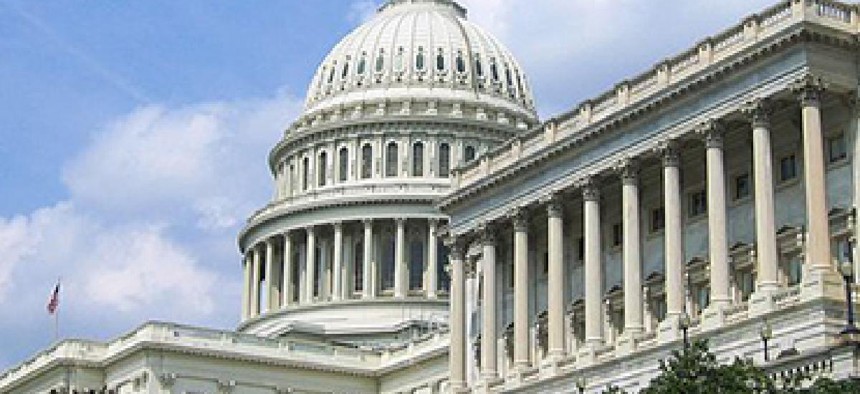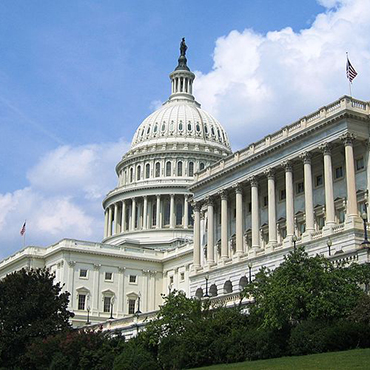FITARA axed from defense bill

A revised version of the Pentagon policy bill could be considered in the House this week, but IT acquisition reform will have to wait until at least 2014.

A plan to increase the power and responsibility of top CIOs at federal agencies was not included in the revamped version of the defense authorization bill awaiting action in Congress.
The Federal Information Technology Acquisition Reform Act (FITARA) was passed by the House of Representatives in June as part of the annual defense policy bill. It had been filed as an amendment to the Senate bill before the Thanksgiving recess, but like more than 500 other amendments, it was not taken up by legislators.
Members of the Armed Services Committees in both chambers met over the Thanksgiving recess and went through the full slate of amendments adopted on the House side, and included a slate of them in the revised version. FITARA is not in the final draft of the $632.8 billion measure.
The revised bill will first be considered in the House, where quick action is expected before that body adjourns on Dec. 13. Once the bill passes the House, it goes to the Senate where it must past without any amendments to get to the president's desk this year. There are many possible impediments to passing the bill in the Senate, even if it is fast-tracked by leadership, as planned.
There is urgency to pass the bill before the end of the calendar year because certain military spending authorities are set to expire, including combat pay bonuses, reenlistment bonuses, and travel allowances. No Congress in more than 50 years has closed out the year without passing the defense authorization bill. Such certainty has made the bill a magnet for measures with no other path to enactment. The Clinger-Cohen Act, which established the agency CIO position, and which FITARA seeks to update, was passed as part of the defense bill for fiscal year 1996.
"The reality is, the House is going to adjourn on Friday," Senate Armed Services Chairman Carl Levin (D-Mich.) said at a Dec. 9 news conference. "There's no way to get a defense bill passed this year, except the way we are proposing."
"We now have a bill," House Armed Sevices Chairman Buck McKeon (R-Calif.) concurred, "and now it's, do you want the bill or not."
The bill does include a few items of interest to the federal IT community, including new authorities for the Energy Department to monitor supply chain integrity, with an eye to excluding suppliers with links to the Chinese army. The Defense Department has similar authority already, and there are supply chain measures in place from the fiscal 2013 continuing resolution that put restrictions on the ability of the Justice Department, NASA, Commerce, and the National Science Foundation to acquire Chinese IT gear.
The new defense bill also would instruct the Defense Department to undertake an analysis of its offensive and defensive cyber capabilities, and notify Congress when the agency initiates and completes investigations into cyber breaches in which critical information is compromised.
FITARA'S future
FITARA could move in the House as a stand-alone bill after the holiday recess. The amendment adding it to the defense bill was adopted with wide bipartisan support.
In a recent interview on the WJLA public affairs program Government Matters, bill cosponsor Rep. Gerry Connolly (D-Va.) said he wasn’t opposed to passing components of the IT reform bill, such as CIO authority and data center consolidation, as separate measures.
There is still an appetite for IT reform among industry, although some are seeing an opportunity to modify the bill.
The flawed rollout of HealthCare.gov provides a great opportunity for a more comprehensive, holistic look at IT reform that goes beyond acquisition, said Stan Soloway, president and CEO of the Professional Services Council, who supports many of the provisions in the legislation. “The risk of FITARA passing is that it gives too many people an opportunity to declare victory and go home,” Soloway told FCW.
Congress missed an opportunity to implement at least some key provisions of FITARA in the defense bill, said Erica McCann, who lobbies on federal procurement issues for the Information Technology Industry Council. “Industry collaborated extensively with the bill's authors to improve its viability and effectiveness, and we hope that Congress will have an opportunity to consider those solutions in 2014,” she told FCW in an emailed statement. “Clearly, there is more work to be done and the IT industry remains committed to promoting comprehensive acquisition reform that improves the way the federal government procures IT goods and services,” she said.
NEXT STORY: GAO: Take account of reverse-auction growth



